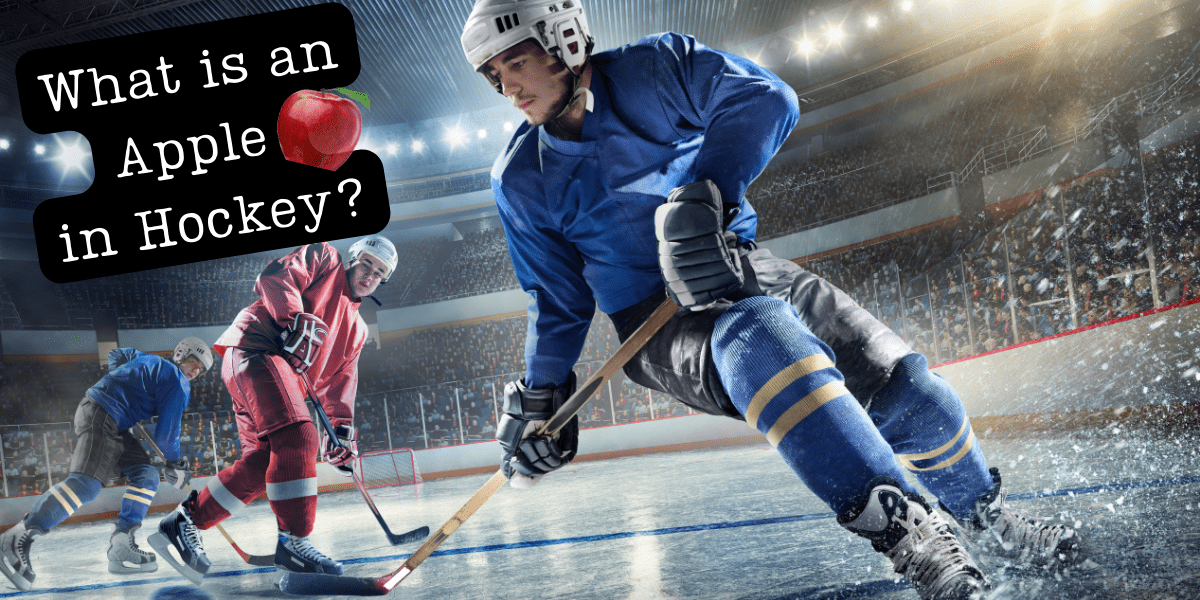Unpeeling the Mystery: What is an Apple in Hockey?
As a hockey enthusiast, do you ever find yourself wondering what an Apple in Hockey? In other words, an Apple is when player sets up a goal for their teammate, they earn themselves an ‘Apple’ or an Assist on a goal. Many newcomers to the sport are left scratching their heads, wondering what it means and how it relates to the game. But fear not, my fellow fans! Today, we’re going to dive into the fascinating world of hockey vernacular and uncover the true meaning behind the enigmatic ‘apple.
‘Apple’ is a term used in hockey to describe an assist, which is a key play that leads to a goal. When a player makes a pass to a teammate who then scores, they are credited with an assist or an ‘apple’. It’s a way to acknowledge the contribution of the player who set up the goal-scoring opportunity. Assists are an essential aspect of the game, showcasing teamwork and strategic gameplay.
While it may seem like just another term in the wide world of hockey terminology, the ‘apple’ has a significant impact on the game’s scoring and player recognition. Understanding the different types of assists and how they’re earned can make all the difference in appreciating the game fully. So, let’s take a closer look.
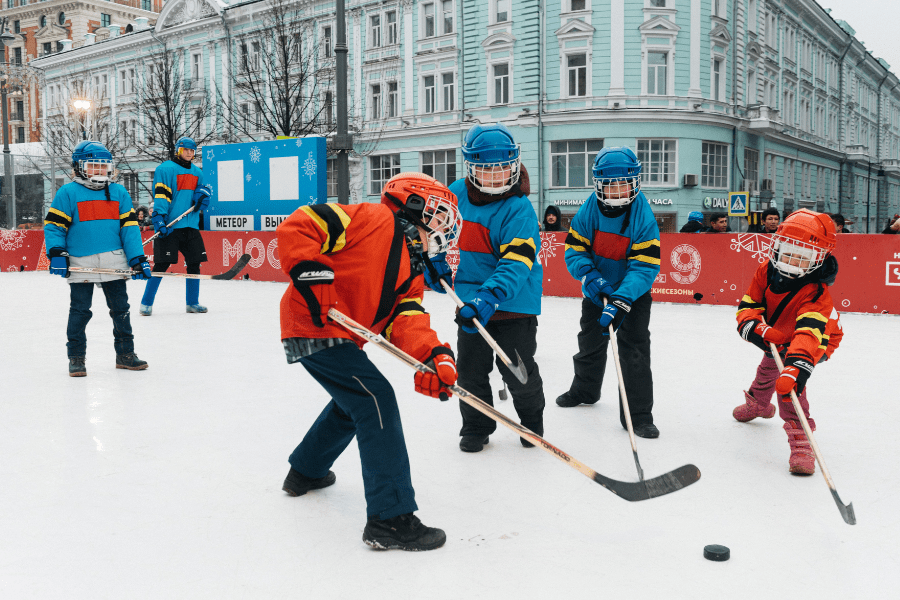
Key Takeaways:
- ‘Apple’ in hockey refers to an assist, which is a key play that leads to a goal.
- Assists are an essential aspect of the game, showcasing teamwork and strategic gameplay.
- Understanding the different types of assists and how they’re earned can make all the difference in appreciating the game fully.
- ‘Apple’ is just one of many intriguing aspects of the sport that make it truly special.
- So next time you watch a hockey game, keep an ear out for the ‘apples’ and appreciate the teamwork and skill that goes into each play.
Understanding the Basics: The Definition of an ‘Apple’
As a hockey enthusiast, do you ever find yourself puzzled by the term ‘apple’? Don’t worry; you’re not alone. Many newcomers to the sport are left scratching their heads, wondering what it means and how it relates to the game. But fear not, my fellow fans! Today, we’re going to dive into the fascinating world of hockey vernacular and uncover the true meaning behind the enigmatic ‘apple’.
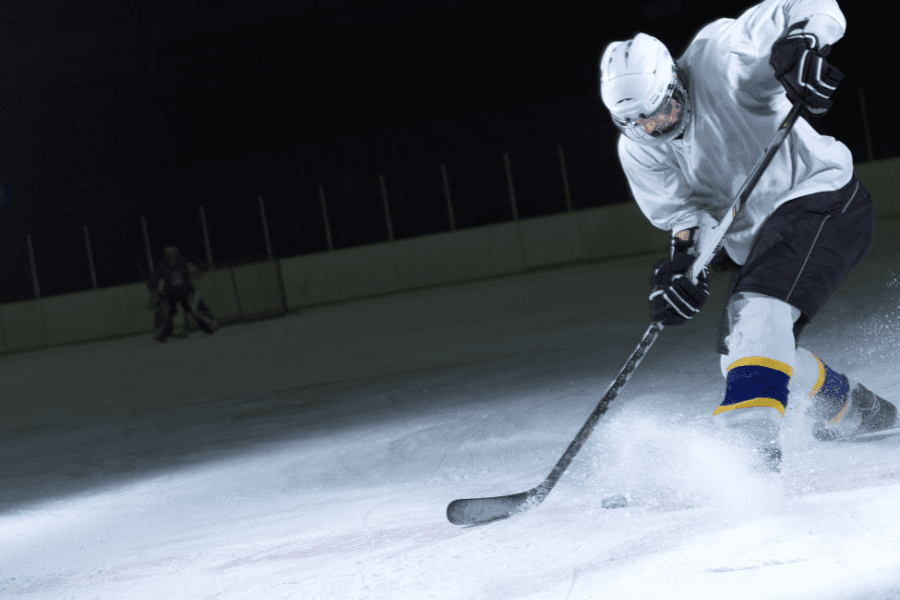
While it may seem like just another term in the wide world of hockey terminology, the ‘apple’ has a significant impact on the game’s scoring and player recognition. Understanding the different types of assists and how they’re earned can make all the difference in appreciating the game fully. So, let’s take a closer look.
Assists are an important part of hockey, highlighting the collaborative effort of players to create scoring opportunities. And the language used to describe these assists is just as colorful as the game itself. Let’s take a closer look at how an ‘apple’ fits into the hockey lexicon.
The Basics: How Assists Work in Hockey
When a player scores a goal, they’re obviously the star of the show. But oftentimes, that goal wouldn’t have been possible without the help of a teammate. That’s where assists come in.
An assist is when a player passes the puck to a teammate, who then goes on to score a goal. The player who made the pass is credited with an assist, or an ‘apple’.
Assists can happen in a variety of ways. The player could make a solo rush into the opposing team’s defensive zone, drawing in the defense and leaving a teammate open for the shot.
Or they could make a quick pass in the neutral zone, allowing their teammate to enter the attacking zone with speed and momentum. No matter how the assist happens, it’s all about teamwork.
Understanding the Rink’s Key Terms to Know
When it comes to hockey, there are a few key terms you’ll need to know to understand how assists work. Here are some of the most important:
| Term | Definition |
|---|---|
| Hockey Stick | The stick that players use to handle the puck. It comes in left- and right-handed versions. |
| Opposing Player | A player on the other team, trying to prevent goals from being scored. |
| Opposing Team | The team that is playing against your team. |
| Blue Line | A line on the rink that separates the attacking zone from the neutral zone, and the neutral zone from the defensive zone. A player must have the puck over the blue line in order to enter the attacking zone. |
| Offensive Zone | The area of the rink in which your team is trying to score. |
| Power Play | A situation in which one team has a numerical advantage because the other team has one or more players in the penalty box. |
| Losing Team | The team that is behind in score and trying to catch up. |
| Neutral Zone | The area of the rink between the two blue lines. |
| Defensive Zone | The area of the rink in which your team is trying to prevent the other team from scoring. |
Knowing these terms will help you understand how assists work, as well as the overall strategy of the game. It’s all about gaining control of the puck and working together to create scoring opportunities.
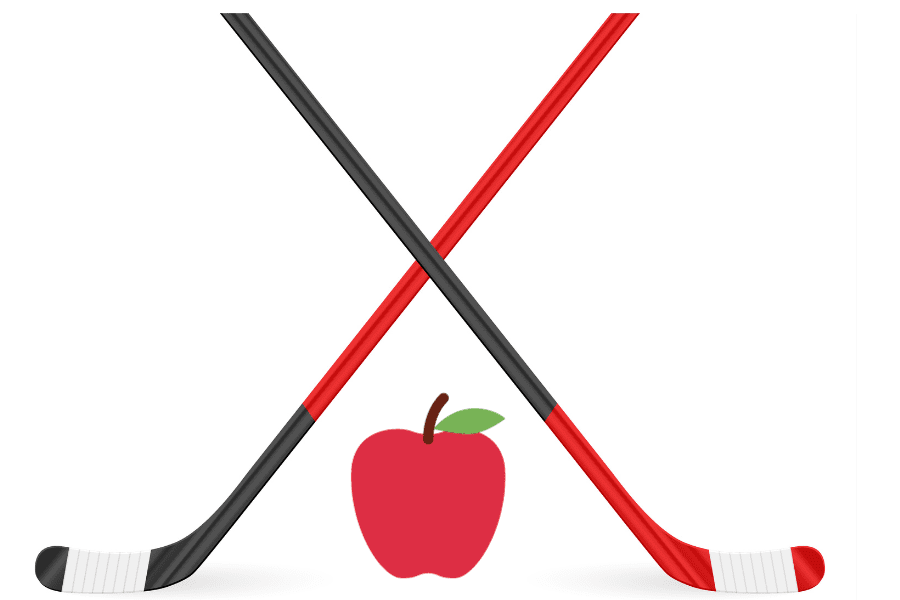
Now that you know what an ‘apple’ is, and how it fits into the world of hockey, you’re ready to watch a game with a whole new perspective. Keep an eye out for those assists, and appreciate the teamwork and skill that goes into each play. Game on!
The Anatomy of an ‘Apple’: Exploring Different Types of Assists
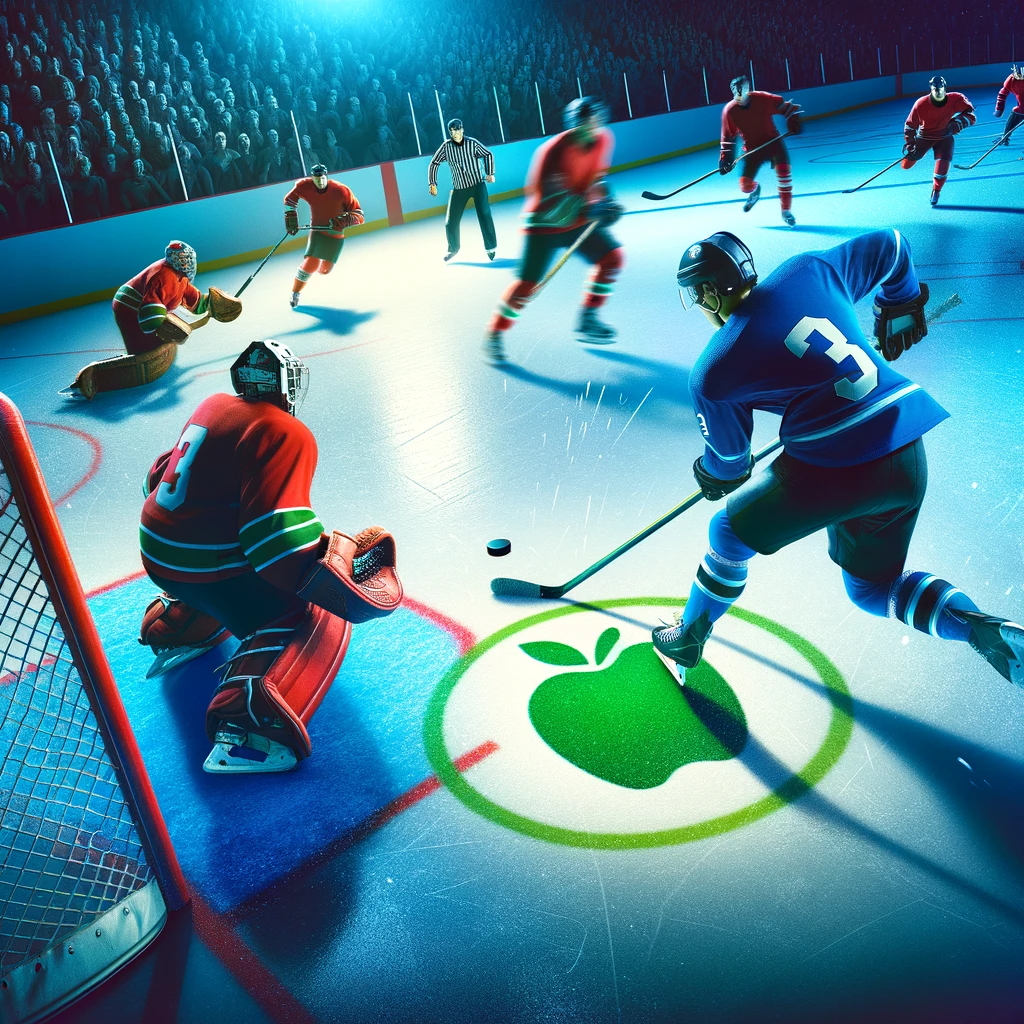
Not all assists are created equal in hockey.
There are different types of assists that can be earned during a game.
A primary assist occurs when the pass directly leads to a goal.
A secondary assist is when the player who provided the primary assist also received a pass.
Let’s take a closer look at some examples of each type of assist:
| Type of Assist | Description | Example |
|---|---|---|
| Primary Assist | Direct pass that leads to a goal | Picture this: It’s a single game against the opposing team, and my teammate and I are in the attacking zone. We’ve just won the puck drop, and with control of the puck, I pass it to my teammate who fires a shot from the top of the faceoff circle, beating the goalie high glove side. That was my primary assist! |
| Secondary Assist | Pass that leads to the primary assist | Mark Messier is one of the greatest hockey players of all time, and he was known for his incredible playmaking ability. In a playoff game, he made a pass from the neutral zone to a teammate streaking through the defensive zone. That player then made a pass to another teammate in the attacking zone, who scored the goal. Messier was credited with the secondary assist, even though he was the one who started the play! |
As you can see, these different types of assists highlight the collaborative effort of players to create scoring opportunities. It’s a game of inches, and every pass counts!
There’s also something called a penalty shot, which can result in an unassisted goal. This happens when a player is awarded a free shot on net due to an opposing team’s penalty, and they score without any help from their teammates.
Regardless of whether it’s a primary or secondary assist, every ‘apple’ counts towards the final score and contributes to the team’s success. So the next time you see a goal, take a moment to appreciate the teamwork and skill that led up to it.
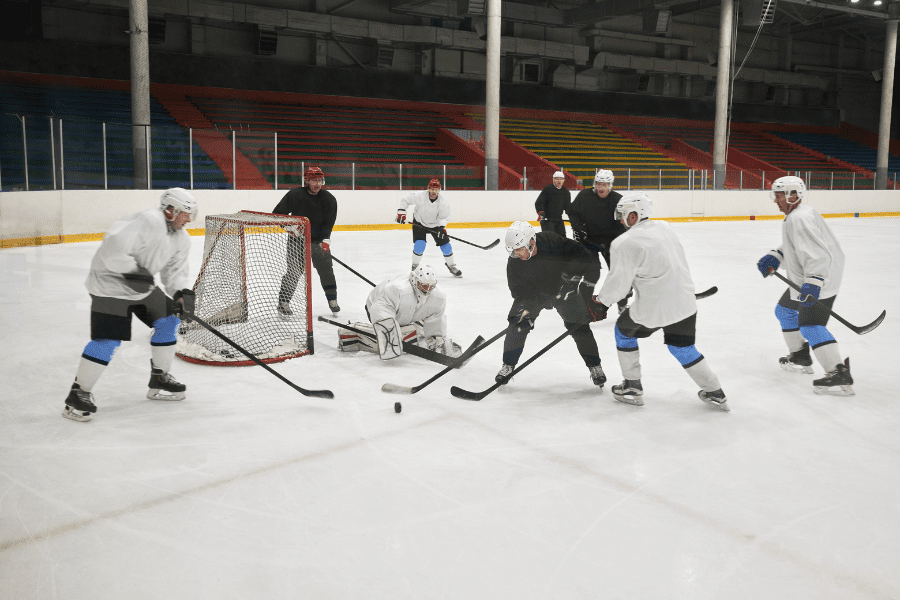
| Type of shot | Definition |
|---|---|
| Slapshot | A powerful shot taken with a wind-up motion |
| Wrist shot | A quick, flicking motion of the wrist to shoot the puck |
| Backhand | A shot taken with the back of the stick |
While scoring goals is a key part of the game, players also need to have control of the puck to make scoring opportunities happen. That’s why terms like “high scoring” and “control of the puck” are so important in the hockey lexicon.
Overall, the world of hockey slang and jargon adds another layer of fun and entertainment to the sport. It’s a way for players and fans to connect and celebrate the unique culture that surrounds this beloved game.
Conclusion: Wrapping Up the Apples and More
Well, folks, we’ve come to the end of our journey into the strange and wonderful world of ‘apples’ and hockey terminology. I hope you’ve had as much fun as I have uncovering the mysteries behind this unique slang and jargon.
So, What Have We Learned?
First and foremost, we’ve clarified that an ‘apple’ in hockey is actually an assist. It’s a way to recognize the player who made the key pass that led to the goal. We’ve also explored the anatomy of assists, delved into different types of passes, and celebrated the collaborative efforts of players.
But we didn’t just stop at ‘apples’. We also took a dive into the wider world of hockey slang, learning about everything from “great flow” to “playoff beards.” And let’s not forget the famous Gordie Howe hat trick, a high-scoring achievement that every player dreams of.
The Final Score
So, what’s the final score? Well, we’ve gained a newfound appreciation for the language and culture of hockey. More than that, we’ve discovered the importance of teamwork, strategic gameplay, and recognizing the contributions of all players on the ice.
As we wrap up this article, I hope you’ll join me in celebrating the unique and wonderful world of hockey. So, grab your stick and lace up your skates – it’s game on!
FAQ
What exactly is an ‘apple’ in hockey?
An ‘apple’ in hockey refers to an assist, which is a key play that leads to a goal. It’s a way to acknowledge the contribution of the player who set up the goal-scoring opportunity.
How does an ‘apple’ relate to the sport of hockey?
In hockey, when a player makes a pass to a teammate who then scores, they are credited with an assist or an ‘apple’. Assists are an important aspect of the game, showcasing teamwork and strategic gameplay.
Are all assists in hockey the same?
No, not all assists are created equal. There are different types of assists, such as primary and secondary assists, that can be earned during a game. These different types highlight the collaborative effort of players to create scoring opportunities.
Conclusion
An ‘apple’ in hockey is an assist, recognizing the player who sets up the goal-scoring opportunity. It’s just one of many intriguing aspects of the sport that make it truly special. So next time you watch a hockey game, keep an ear out for the ‘apples’ and appreciate the teamwork and skill that goes into each play. Game on!

